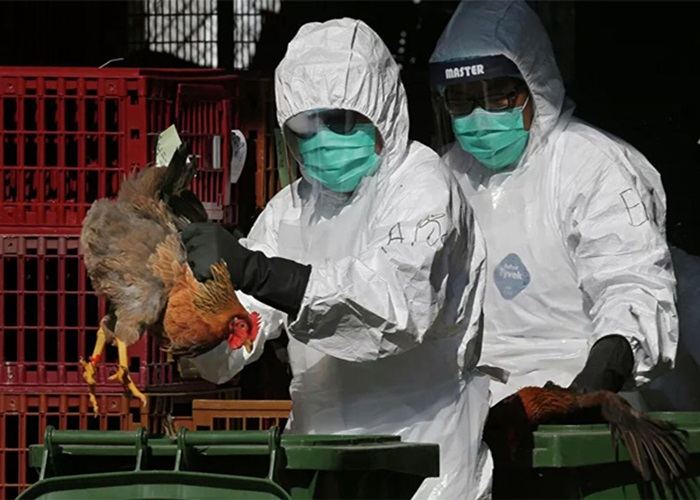In a significant development, a California dairy has been forced to recall its raw milk following the discovery of the bird flu virus during routine testing. This incident has raised alarms about the safety of dairy products and the potential spread of the virus.
Routine testing is a crucial part of ensuring the quality and safety of food products. In the case of the California dairy, samples of the raw milk were likely taken and sent to a certified laboratory for analysis. Advanced testing methods were employed to screen for a variety of pathogens, and it was during this process that the presence of the bird flu virus was detected. The specific strain of the virus has not been fully disclosed, but any detection of bird flu in a consumable product like raw milk is a serious matter.
The presence of the bird flu virus in raw milk poses potential risks to public health. While bird flu primarily affects birds, there have been instances where the virus has jumped to humans, leading to respiratory illnesses and, in some cases, more severe complications. Consumers who consume raw milk contaminated with the virus could be at risk, especially those with weakened immune systems, such as the elderly, young children, and individuals with pre-existing health conditions. The virus could potentially cause flu-like symptoms, pneumonia, or other respiratory issues.
This recall is likely to have a significant impact on the California dairy industry. Consumers may become concerned about the safety of raw milk and other dairy products, leading to a decrease in demand. The dairy in question may face financial losses due to the recall, including the cost of disposing of the contaminated milk and potential damage to its reputation. The industry as a whole may also come under increased scrutiny, with regulators likely to review and strengthen testing and safety protocols.
In response to the recall, the dairy and relevant regulatory authorities are taking several steps. The dairy is likely working to identify the source of the contamination and implement measures to prevent future occurrences. This could include improving biosecurity on the farm, such as better hygiene practices, controlling access to poultry and other potential sources of the virus, and increasing the frequency of testing. Regulatory authorities are also likely to increase inspections of dairy farms and processing facilities to ensure compliance with safety standards and to prevent the spread of the virus.
In conclusion, the recall of raw milk from a California dairy due to the detection of the bird flu virus is a serious incident that highlights the importance of strict testing and safety measures in the food industry. It also serves as a reminder for consumers to be cautious about the products they consume and for the industry to remain vigilant in safeguarding public health.
Read more
- Raw Milk In California: A Bird Flu Concern As Officials Make A Discovery
- Prof Tim Spector: Lab Leak, The Probable Origin Of Covid
- Severe Flu Risk Factors Disclosed By CDC As It Combats Virus Onslaught


